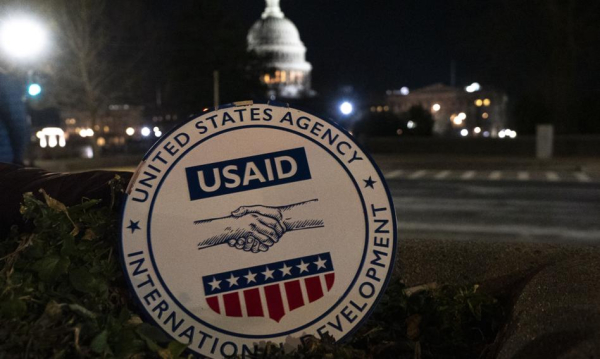The unsung beneficiaries of American aid to Africa through a program of the United States Agency for International Development, known as USAID, were the institutions that served the organization’s many thousands of staff: expensive hotels, restaurants, shops, and car repair shops. They were the first to feel the lack of wealthy clients.

In Africa, the recall of USAID employees to the United States quickly resulted in the termination of projects run by the agency. And dozens of people were employed to handle each of them. In Liberia, for example, USAID employed just over 100 people, but projects worth hundreds of millions of dollars were handled by several thousand well-paid workers, both from the United States and locals, who, thanks to high salaries, were slowly creating a local middle class. It all ended with the decision of the Donald Trump administration to end USAID.
“Several conferences were cancelled overnight at my hotel, and we sometimes organised several a week. Their departure (USAID employees – PAP) was also felt by our restaurant and café, where informal business meetings were held practically every day. We will feel it even more in a moment. We have just finished building a new complex with apartments for long-term rental, but it may turn out that there will be no one to rent them to” – Anna, the owner of one of the largest hotels in Monrovia, counts the losses, but is optimistic and in a conversation strongly emphasises that her family business survived two civil wars in Liberia that ruined the country, so she is convinced that these “disturbations will pass”.
The Lebanese owners of the building across from the currently empty USAID headquarters in Monrovia on UN Drive are also counting losses. For two months now, a large “for rent” sign has been posted on the gate of the four-story apartment building overlooking the ocean, which is 50 meters away. But there are no takers.
However, the owners of car repair shops are probably in the worst situation. In most African countries, repairing or just servicing a car in a workshop involves a significant risk of losing the original part, which did not require any repair at all. Trustworthy workshops are extremely expensive and there are usually very few of them, which is why they are besieged by owners of more expensive cars.
“They were our best customers. Everyone who came on a contract bought a new car, usually a well-equipped Toyota SUV. In one day, we lost dozens of customers. And in a moment, all three garages in the city will lose hundreds, because the local satellites will soon realize that without generous salaries they will no longer be able to afford cars bought for $40,000,” complains Michael, a Lebanese who runs a car repair shop on Benson Street in the Liberian capital. As evidence, he showed a thick notebook with a long list of vehicles. More than half were crossed out in red. “These are not complete losses, I will wait to cross out the rest, because maybe not all of them took their cars to the US.”
Popular restaurants in Monrovia are also empty; they can be counted on the fingers of one hand.
“I opened this place especially for Americans from USAID. They came every day for coffee and cake. On weekends, they brought books, because it’s quiet here and you can hide from the sun. Now, people rarely come here,” Gloria admits that she has never complained about the crowds in her cafe, modest but strategically located in an alley between the US embassy and USAID headquarters. Now, she doesn’t see the point of running the business without regular customers.
Liberia is not a country besieged by tourists, the services are strongly supported by expats, such as employees of USAID, or many UN agencies. If the US president limits or cuts UN funding, not only people who really need help and depend on it will lose, but also many businesses will go bankrupt.
From Abidjan Tadeusz Brzozowski (PAP)
you/ mal/